“Mama, listen. It’s so quiet. It’s silent.”
I was waiting for my son to take a picture of a cool fungus he found growing on the forest floor, and my daughter, in her typical fashion, flew down the trail like a busy little bird. She stopped about 30 yards ahead and yelled back again, “Mama, it’s silent here!”
I believe her, but I can’t experience silence like she does. I strain my ears, willing the buzzing and whining to recede for even a moment, just long enough for me to share this with her.
It doesn’t, of course. I haven’t “heard” silence in years, living with tinnitus and hearing loss. It used to come and go. I’d get the high-pitched droning and the only thing that would drown it out was trying match the tone with my own voice. Sometimes, if I could just relax, it would fade away quickly.
I called back to her, “It is so quiet here.” She replied, “No, mom, silent. Nothing!”
Grasping at straws, I make a request to my brain to stop filling in the gaps of remembered forest sounds, and imagine nothing, no sound.
These days, my tinnitus is always there. Every once in a while, I’ll get a new sound that pierces through the constant whir, and I hope that it can be traced to something in the material world. Always the optimist, I’ll describe the noise to someone close by to see if it’s an outside-my-head noise, or inside. Almost always, I get a look of concern or mild confusion back. Nope.
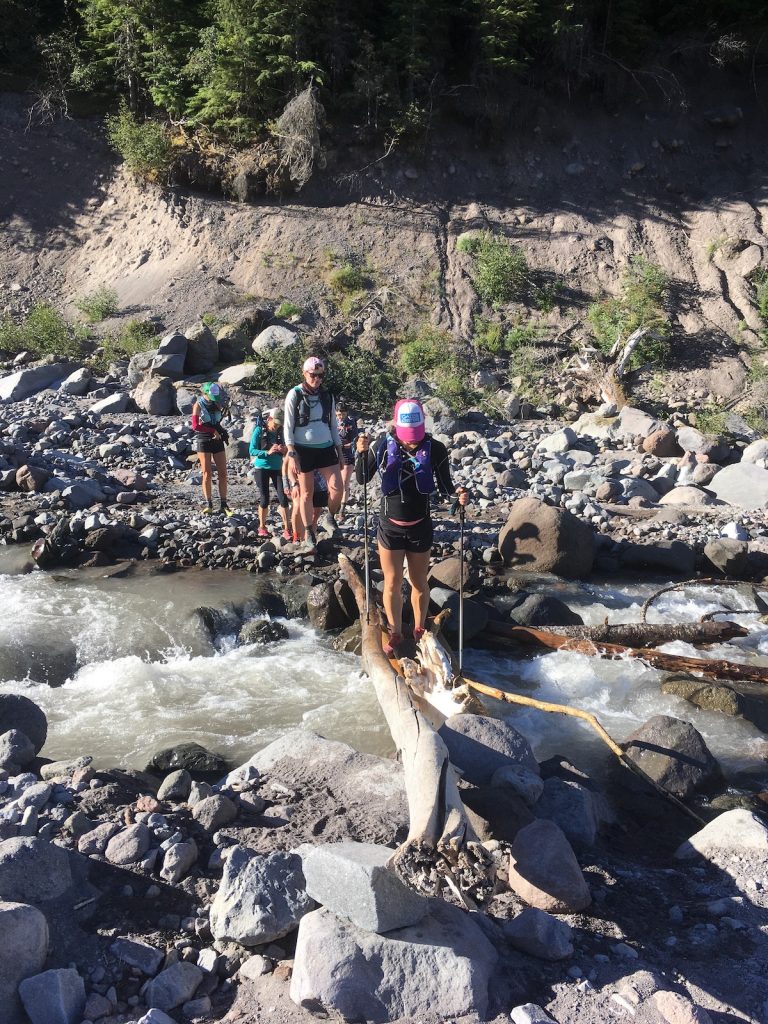
These days, it’s really hard for me to hear my daughter speaking unless I can also read her lips. The frequency of her voice is a frequency I seem to have lost. These days, I always have to have the subtitles on for movies. These days, there’s more that I don’t know that I don’t hear.
Since I was a kid, I’ve been hard of hearing. I’ve been in and out of hearing aids since age 19. I’ve always had to rely somewhat on my other senses to navigate. When I’m running in the forest, I do my best to differentiate the tinnitus sounds from the other sounds. Wind, for example, becomes really distorted and loud. Wind monopolizes all the space meant for any other sounds. It took me years to really get to the bottom of why I don’t like wind, as a general rule. It zaps me of any capacity to use my sense of hearing, and often leaves my tinnitus roaring for hours if not days. Water, I can’t hear running water unless I’m right upon it. I watch for the mosses to change and for the plants that love to grow near water to thicken. That’s how I know I may be coming up on a stream.
Birdsongs are what I miss the most in nature. When I’m with people, they might point out a birdsong, and I have to replay the song from an old memory and tether it to flitting movements up the in the trees. Rain, I can feel coming. My sense of smell actually sharpens more and more as time marches on, but birdsongs come from a place in my past, a sound I used to hear, and a sound I fill into these silent-but-not-silent forest moments.
When I’m running trails, I’m constantly feeling, watching, smelling. Movements in my peripheral vision, feeling subtle changes in the weather and the amount of light. At nighttime, I’d be lying if I didn’t admit my anxiety rises. No matter how much I practice and train at night, it still feels the most vulnerable. I have really had to work through a lot of mental entrapment to become somewhat more comfortable pulling long hours during overnight running. When I’m racing, I’m constantly watching for approaching shadows, because I’ll never hear another runner unless they’re talking as they draw near. During my last race, it got to the point that I wondered if I should be wearing a sign to indicate that even though I’m not wearing earbuds, I won’t hear them approaching. If I’m running in a group, I can’t really hear if I’m in the back of the line. It’s made me faster in certain circumstances because if I’m up front, I’m booking it and trying to hold a conversation at the same time.
I could get down about losing my hearing while simultaneously experiencing non-stop tinnitus, but that’s not really me (Is it really any trail or ultrarunner? Probably not!). We all have our challenges and obstacles that surface whether we’re learning to run the trails or doing the fine-tuning on years of training. It’s all in how you think those challenges affect you. We decide our response. I’ve chosen to focus on how a disadvantage like distorted hearing actually strengthens my other senses.
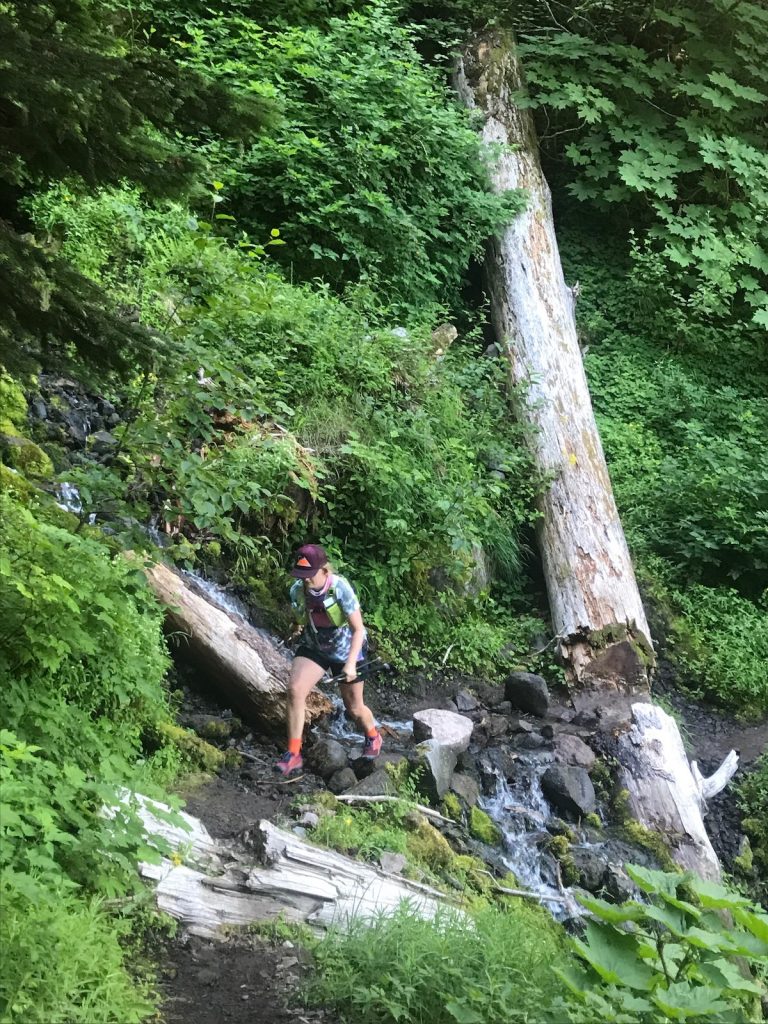
While processing the extent to which the combination of tinnitus and hearing loss affects my running, I also thought it would be funny to let people know I can’t hear when they fart on runs, ever. I also then had the thought that other people probably had heard me fart while running. I don’t know which ones make a sound out in nature. I’ll probably never know, and honestly, it makes me laugh every time I think about it. Fart jokes never get old.
In the silent forest, with my son studiously examining the fungus, and my daughter shushing me, I closed my eyes for a moment. Letting the waves and layers of forest flood my senses, I stood there. The familiar hum of tinnitus, always a constant, stayed on while I let myself experience my own version of silence. This is my version of silence, and it’s good. “It is so silent here. Isn’t it?”, I whispered down to my daughter, smiling.



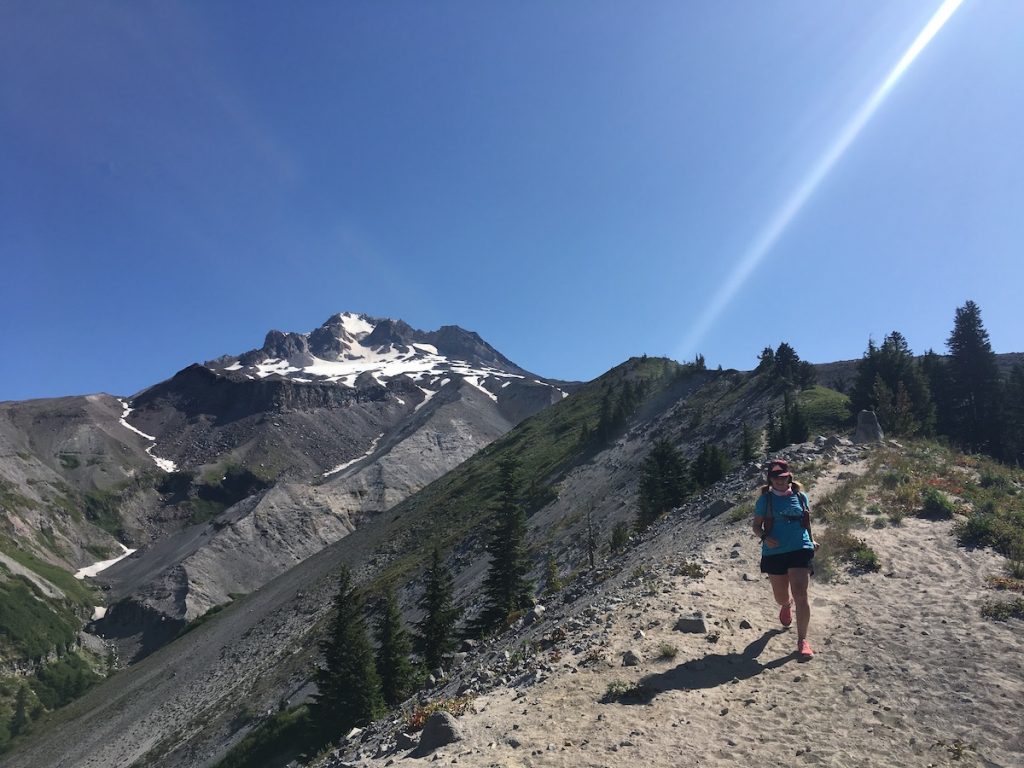
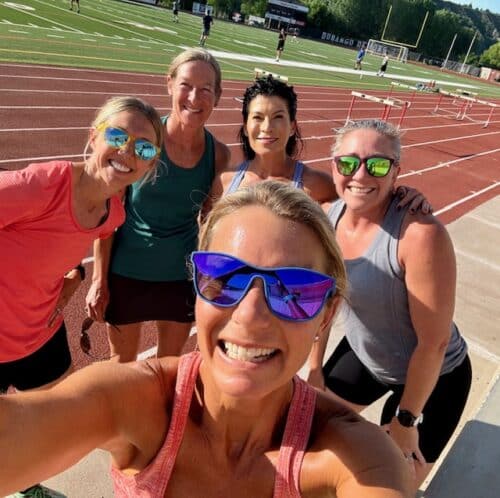
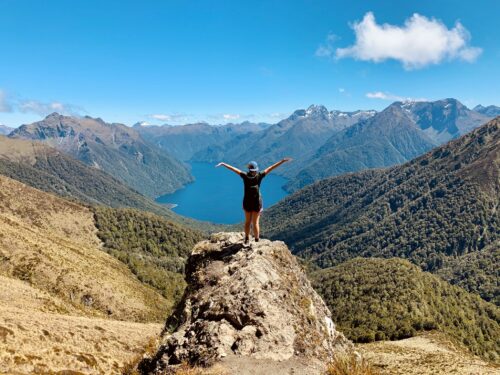


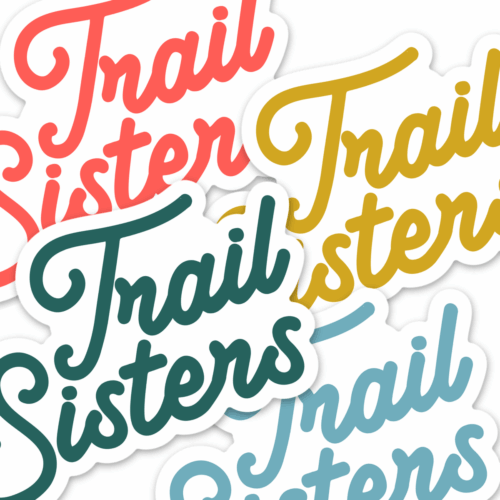
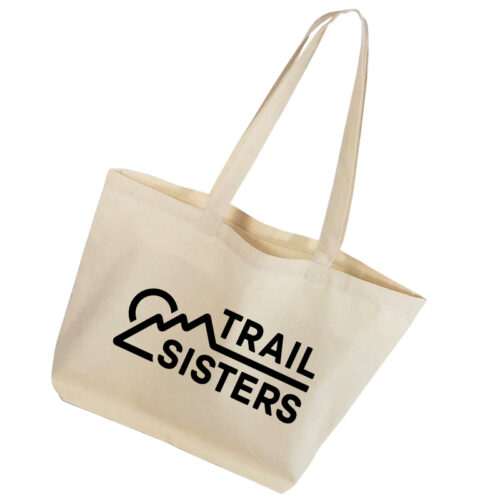
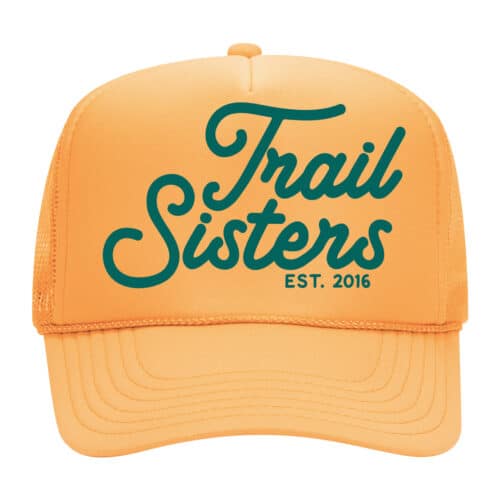
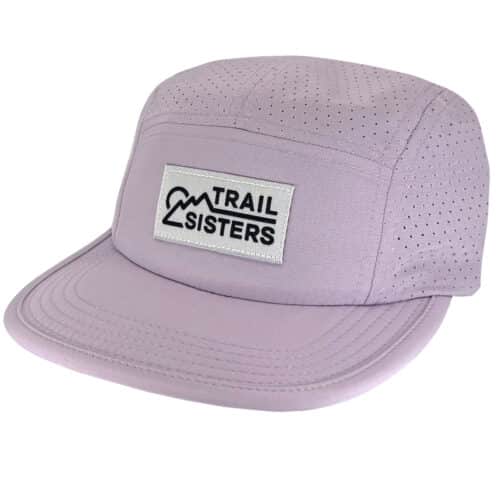
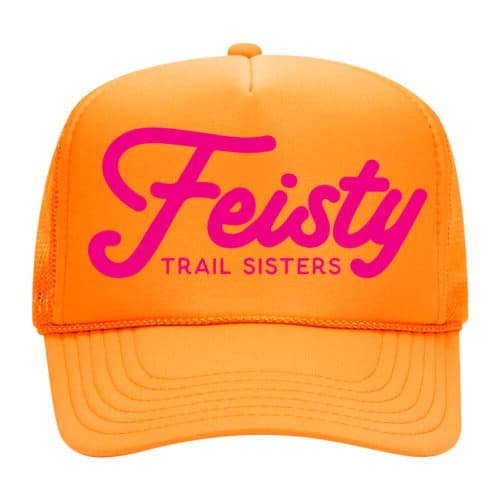
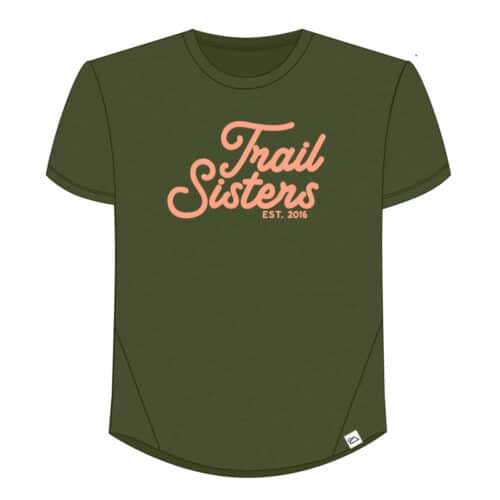


4 Responses
Amanda,
This is a beautifully written article. Thank YOU!
I’m an avid trail runner who also happens to be a Doctor of Audiology! I recently ran a 50K on the Superior Hiking Trail and was amazed at how much I used my ears to “see” the surroundings. I wouldn’t dare take my eyes off the trail because of the technicality of the course. I often think what it must be like for a trail runner with hearing loss and marvel at how much more work they have to put in to be successful in this arena. I can’t imagine running with a group because you can’t see their faces to read their lips. I also understand your comment about “the sign on the back” for an approaching runner because you can’t hear the subtle sounds to know if you need to pull over so they can pass. I admire you for getting out there and being AMAZING!! Thanks for sharing your story!
Amanda,
Thank you for sharing your story. I was diagnosed with moderate to severe hearing loss in one ear about a year ago, and so much of what you said resonated (not being able to hear conversation, tinnitus creeping into the tranquil sounds of nature, having a difficult time hearing your kids (or your spouse in my case). I liked your idea of wearing a sign during a race because I’m certainly startled more easily than most!
I love your idea of trying to focus on the other senses while running. I’m certainly going to try that.
Thank you!
Thank you for this article. I, too, have been dealing with tinnitus and hearing loss for almost 10 years. While it doesn’t make the ringing and buzzing go away or make it easier to have conversations with new people, it’s comforting to know that there are others out there who understand.
I have had severe tinnitus forever. As in, I didn’t even know that other people DIDN’T have a constant barrage of high pitched tones in their heads until a doctor asked me about ringing or whining in my ears when I was an adult. It has gotten worse as I grow older, and sometimes when I am in a particularly silent setting (like trying to fall asleep at night next to my husband and two dogs), the noise can almost drive me mad. As a result, I tend to run with earbuds and music even when it is deemed “inappropriate,” because it is the only thing that keeps me sane. And I tend to keep the music loud, to drown out the multiple pitches of ringing/whining/buzzing going on in here. My most recent race, a trail run, left me startled by multiple other runners coming up behind me, despite routinely looking back for anyone approaching. And when I yelped in alarm, I got several dirty looks, no doubt because of my bone-conduction headphones, cranked up. But how do you explain? in that moment of others judging you on the fly, how do you stammer out, “but I have to have these!”?